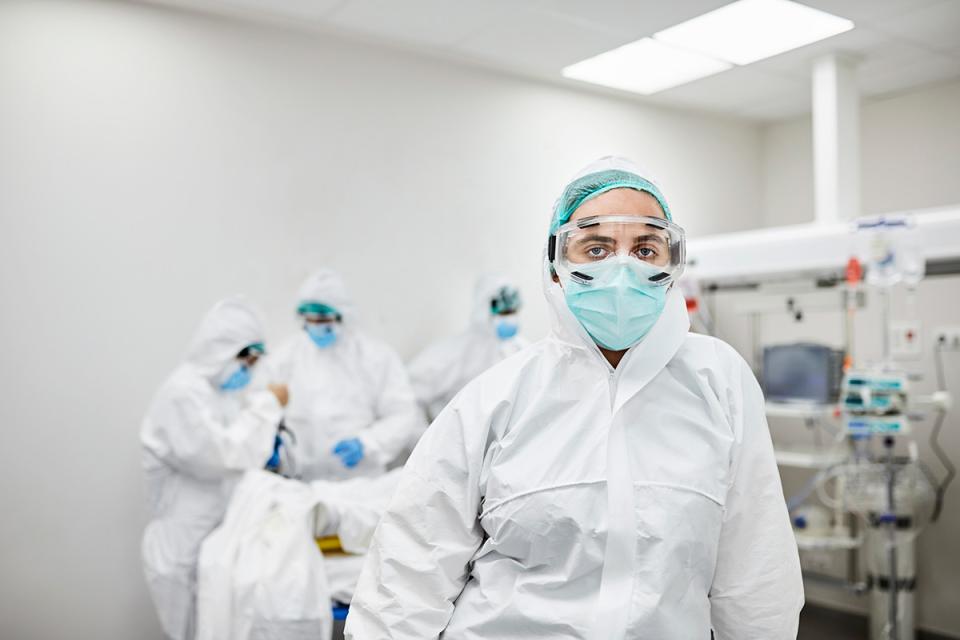Q. Is this impacting patient care in other areas?
A: Yes, as beds fill up, it can become harder to take care of patients in other parts of the hospital. For instance, non-emergent surgeries like knee and hip replacements may have to be postponed, and even some cancer surgeries can be delayed if hospitals are severely impacted.
Q. Why does it matter if the beds are full? Aren't hospitals able to add extra space — such as converting other areas or adding tents — to make up for the lack of beds?
A: Hospitals can usually find ways to add extra space and equipment to expand capacity, but this doesn't mean there are enough physicians, nurses, respiratory therapists and other staff to care for patients. All of these professionals, and many others, are in short supply right now across the country.
Q. Why do hospitals "seem quiet" right now if they are nearing or at capacity?
A: Hospitals may seem quiet due to the current visitor restrictions, which limits the number of visitors allowed inside out of an abundance of caution to reduce the risk of virus transmission to other patients and staff. There may not be a lot of external foot traffic, but many community members are being treated in our facilities and hospitals are getting busier every day.
Q. What is the worst-case scenario?
A: The worst-case scenario is that hospitals will not have the ability to treat every patient who needs care due to a lack of beds, staff, physicians and equipment.
Q. What can be done to prevent this from happening?
A: We've continuously increased our staffing, physicians and equipment to ensure we're able to meet the growing needs of our patients, their families and our community. While HonorHealth is in a very strong position to continue providing top-notch care for those who need it, we need your help. The best way to prevent hospitals from reaching capacity is to support our healthcare workers by committing to preventive measures for COVID-19 that have been recommended by the CDC, including vaccination, appropriate masking and hand hygiene. It is also important to get a flu vaccine.
These measures will serve to prevent unnecessary illness, reduce the strain on our healthcare system and ensure we can continue to provide services to all those in need.
